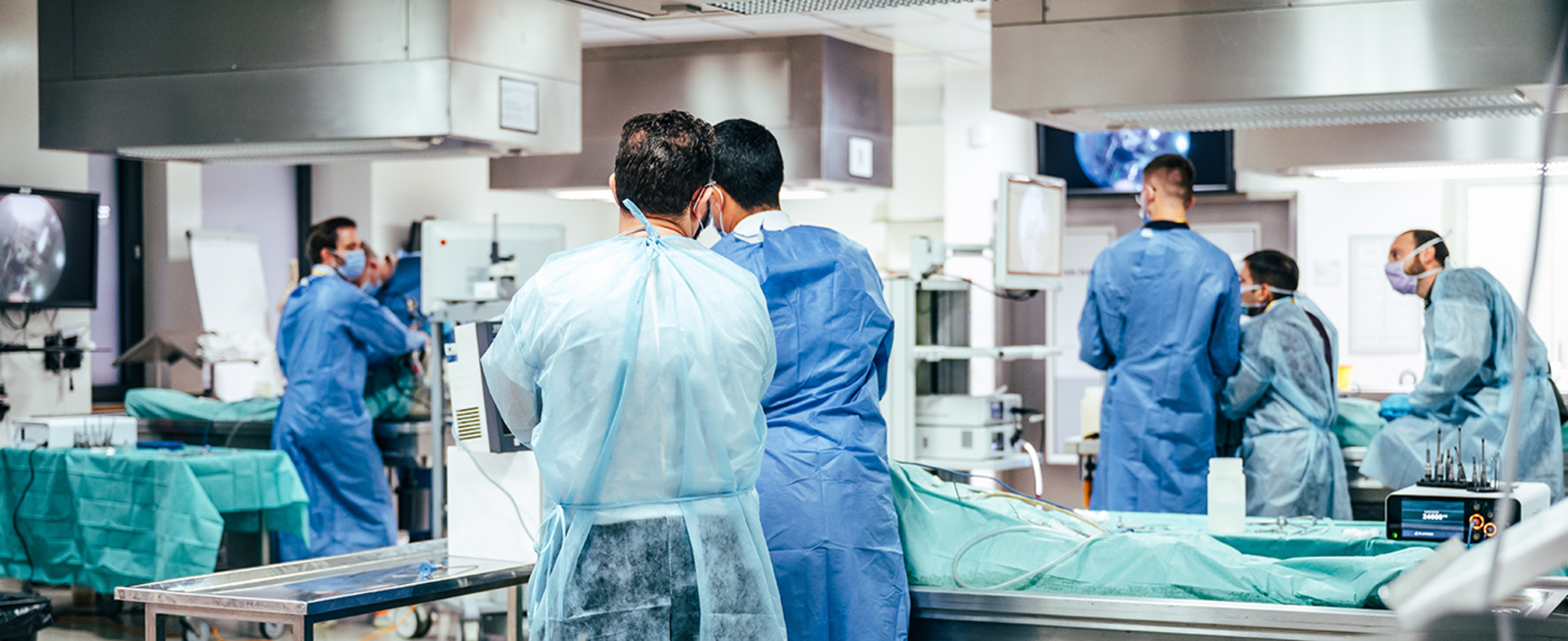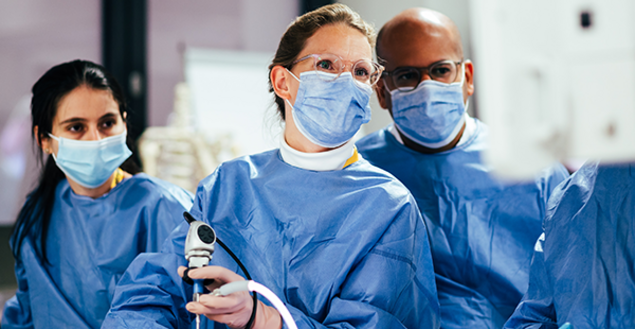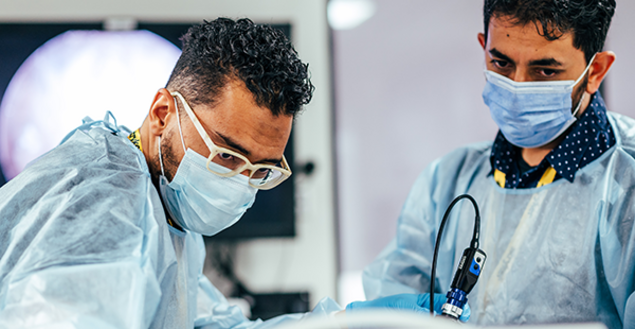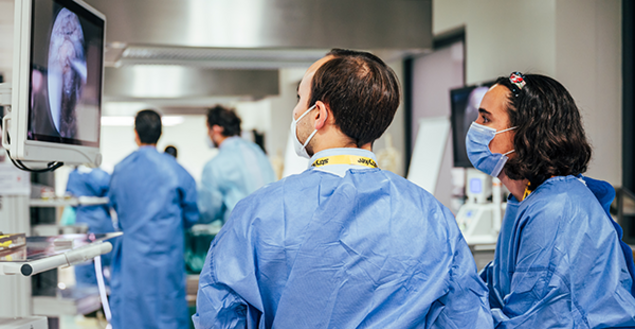Skull Base & Pituitary Pathologies
3rd Münster Hands-on Course
18.–20. September 2025
Exercising the approach while understanding the disease
Target Audience
Our Skull Base Course is designed for ENT specialists, Neurosurgeons, and trainees including Residents and Fellows. It is aimed at professionals with an interest in learning or advancing their skills in minimally invasive surgical techniques. Whether you are new to the field or looking to update your practice with the latest approaches, this course offers valuable insights and training tailored to your needs.
| Course Dates | 18th–20th September 2025 | |
| Venue | Institute of Anatomy, Vesaliusweg 2–4, 48149 Münster | |
| Course Director | Priv.-Doz. Dr. med. E. Suero Molina, MBA, FEBNS – Head of Minimally Invasive Skull Base Surgery, University Hospital Münster | |
| Local Organization Committee | Gian-Luca Dreizner | |
| Fee | 1200 € | |
| Registration | Please register by email skullbase@ukmuenster.de with the following details: first name, surname/last name, specialization (neurosurgery/ENT/other: please specify), year of training, institution, address, email address, telephone number. If you need a visa, please send a copy of your passport to skullbase@ukmuenster.de |

Program Skull Base Course 2025
18.09.2025 | Day 1
| The Pathology | |
| Welcome | |
| Pituitary Neuroendocrine Tumors and the general disease work-up | |
| Craniopharyngioma | |
| Meningioma | |
| Chordomas and Olfactory neuroblastoma | |
| Benign cystic lesions | |
| Overview of relevant cranial nerve anatomy and function | |
| Break | |
| The transsphenoidal approach – indications and limitations | |
| The transsphenoidal approach – step by step | |
| Basic principles of skull base reconstruction | |
| Post-operative CSF leak management | |
| Role of lumbal drain, hydrocortisone and postoperative workout in functional PitNET | |
| Lunch | |
The essentials of the transsphenoidal approach | |
| Hands-on Dissection | |
| Break | |
| Hands-on Dissection | |
| Social program: Welcome drinks |
19.09.2025 | Day 2
| Extending to the coronal plane | |
| Introduction to the coronal plane | |
| Surgical anatomy and pathology of the orbit | |
| Surgical anatomy and pathology of the cavernous sinus/Meckel’s cave | |
| Managing the cavernous sinus in endoscopic endonasal surgery | |
| Surgical anatomy and pathology of the infratemporal fossa | |
| Surgical anatomy and pathology of the petroclival region | |
| Break | |
| Hands-on Dissection | |
| Lunch and Group Picture | |
The Orbit | |
| Surgical anatomy of the orbit: Oculoplastic perspective | |
| Orbital Tumors and Inflammatory Lesions: Resection vs. Biopsy and Technical Considerations | |
| ENT Considerations in Orbital surgery | |
The superior eyelid transorbital route to the skull base: Basic principles Transorbital Approaches to the Anterior Skull Base: From Anatomy to Case-Based Application | |
| Break | |
| Hands-on Dissection | |
| Social program – Course Dinner |
20.09.2025 | Day 3
| Anterolateral cranial base | |
| Keyhole access to the anterior skull base | |
| Eyebrow approaches | |
| Lateral eyebrow and supraorbital craniotomy Medial eyebrow (Kilian-Approach) | |
| Controversies in Skull base Meningiomas | |
| Break | |
| Hands-on Dissection | |
| Lunch | |
Wrap up | |
| Defining goals and barriers to the optimal outcomes | |
Complication avoidance Carotid Injury | |
Case discussion session | |
| Farewell | |
Keynote Speaker
Prof. Sébastien Froelich, Head of Department
Department of Neurosurery, Hôpital Lariboisière, Paris, France
Invited Guests 2025
Jose L. Mattos, MD
University of Virginia, USA
Department of Otolaryngology
Head and Neck Surgery
Lilly H. Wagner, MD
Mayo Clinic, Rochester, USA
Department of Ophthalmology
International Faculty
- Michael Catalino, USA
- Arianna Fava, Italy
- Gilles Reuter, Belgium
- Francesco Doglietto, Italy
Local Faculty
Prof. Walter Stummer




